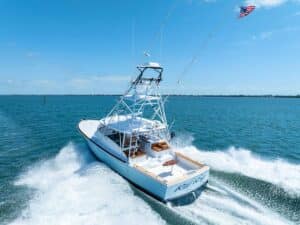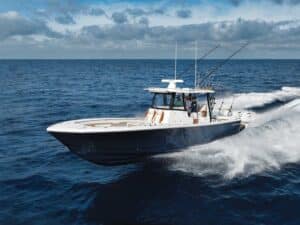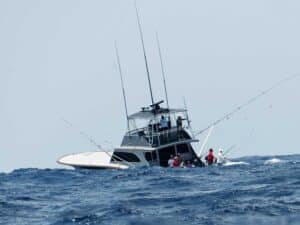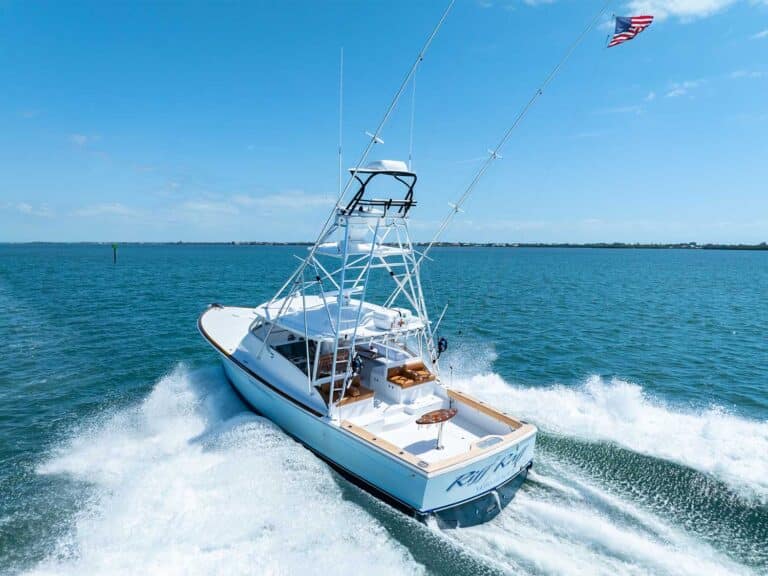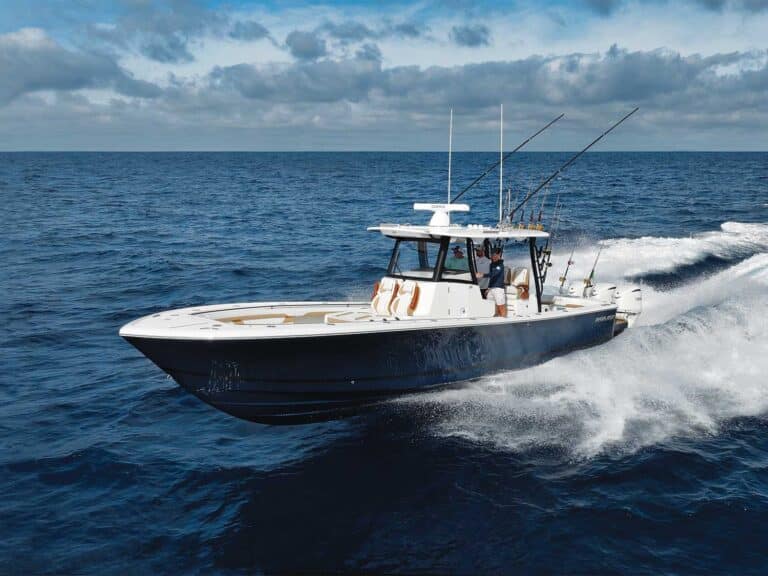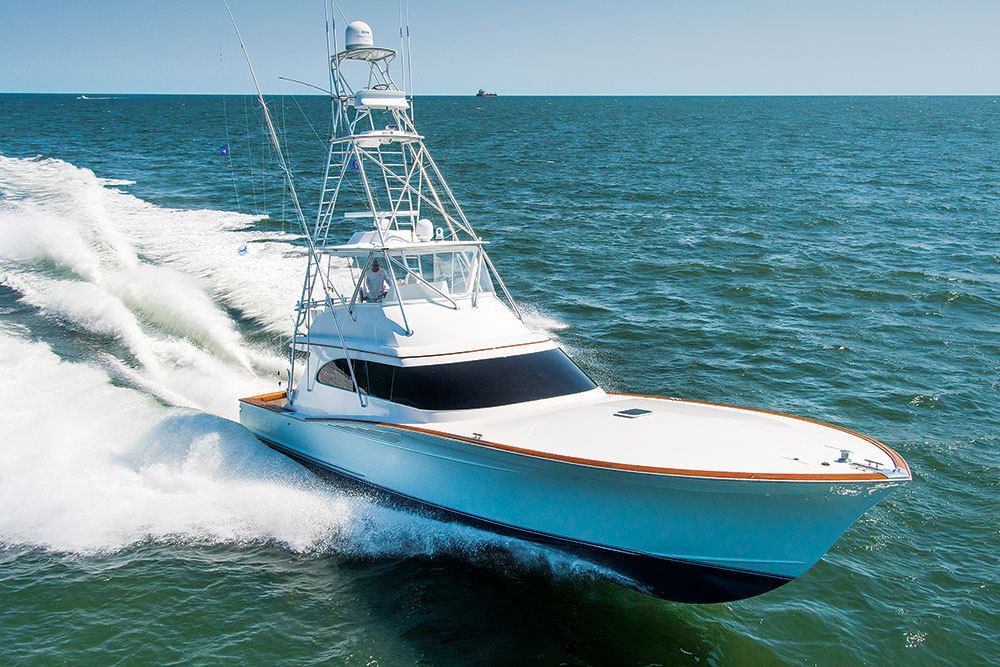
The primary reason to perform an offshore closing is to avoid state sales tax. Many states have a sales tax cap, which has reduced the frequency of such closings. However, there are still certain scenarios and jurisdictions in which an offshore closing can be a useful tool. To be clear, a boat buyer should always hire legal counsel to assist with an offshore closing, but it is still helpful to have a basic understanding of how the closings are performed as well as potential mistakes to avoid.
The Process
Offshore closings occur outside state waters. In other words, delivery of the vessel must be made from the seller to the buyer outside of a state’s jurisdiction in order to avoid its taxes. The process itself is fairly straightforward so long as it is done properly.
Of course, the vessel involved in the transaction must first be taken outside state waters. Upon reaching the closing position, the signees should record and photograph the latitude and longitude readings of a GPS. It is then prudent to step back and photograph the GPS unit on the helm with the signers present in the picture. Some attorneys even suggest taking a picture of the GPS coordinates along with a newspaper published that day for further proof of when the closing occurred. The parties’ authorized representatives then complete and sign a declaration of delivery and acceptance.
The purchase funds can be wired or transferred after the proper execution of the declaration, and the vessel can head back to the port. However, the process is not done there. Upon their return to land, the same individuals should sign, and have notarized, another document typically identified as a protocol of delivery and acceptance, which contains the same information as the declaration, but provides further proof of identification of the signees.
Many individuals often wonder why a notary isn’t brought on board the vessel for the closing. A notary is a state official, and thus, its powers are not effective outside the state’s borders.
Read Next: Can you avoid paying sales and usage taxes on your boat?
Pitfalls to Avoid
It is very important to understand how state waters are defined in each jurisdiction. A common misconception is that state waters always extend 3 miles from shore, but that is not always the case. For example, Florida’s west coast state waters extend 3 leagues, or 9 miles, from shore, while the state waters off Florida’s Atlantic coast extend much farther than 3 miles. Specifically, the Florida Constitution defines its boundaries as extending 3 geographic miles from shore, or to the western edge of the Gulf Stream, whichever is greater. Thus, it is also important to verify the location of the Gulf Stream with the National Oceanic and Atmospheric Administration prior to performing an offshore closing on the east coast of Florida, or you may find that you were indeed in state waters when the transfer occurred.
Another factor is the agreed-upon delivery location in the purchase and sale agreement. Typically, the brokers or parties will list a town or port as the delivery location. In such a case, a seller is under no obligation to agree to an offshore closing. Regardless, the closing location is something buyers should always consider prior to signing a purchase and sale agreement.
Finally, the buyer should avoid attending the closing, a point that is often overlooked by various maritime professionals. The purpose of the offshore closing is to deliver the boat outside of a state’s jurisdiction, but it could be argued a buyer takes possession of a vessel if he boards it within state waters prior to performing the closing. In such a case, the state tax liability could be triggered. Fortunately, a buyer’s presence can be easily avoided by authorizing another individual to sign on their behalf through a properly drafted power of attorney.
Consult an Attorney
Every boat transaction is different in some way, and adding an offshore closing to the mix creates an additional level of complexity. There is a litany of factors before and after the transaction for the parties to consider. With that being said, a maritime lawyer should always be consulted prior to performing an offshore closing.
Raleigh P. Watson is a contributing author, and a Partner at Miller Watson Maritime Attorneys.
